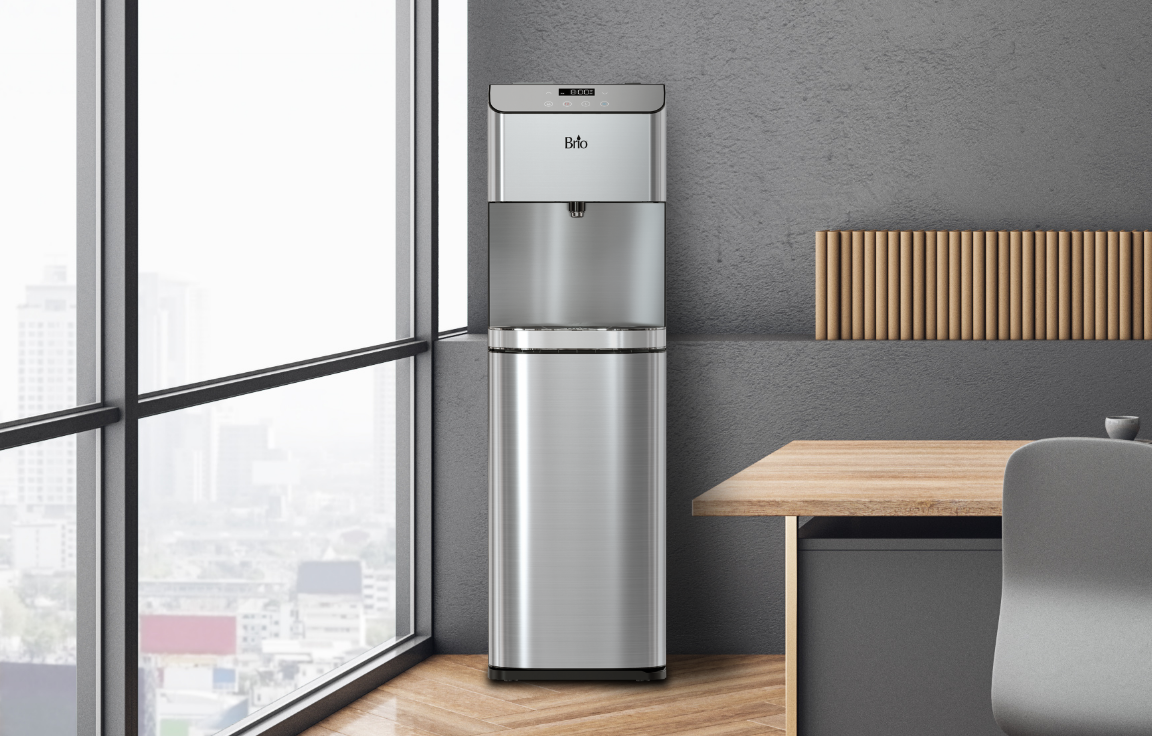How well do you manage your stress?
Life is naturally fast-paced. However, events over the past few years have exacerbated many people’s everyday stressors. While feeling “stressed out” is common, there are healthy ways to combat its effects, like drinking water.
You’ve likely heard it since you were a child: drink water. But:
- How often do you drink water?
- Is there a connection between stress and dehydration?
- Can stress cause dehydration?
- Does drinking water help with anxiety?
What if one of the easiest ways to manage your stress could be as simple as just drinking more water?
Keeping your body hydrated is one of the best ways to manage stress, and understanding the connection between hydration and stress management can help you take practical steps toward improving your daily water intake and, consequently, enjoying better mental and physical health.
The Science of Stress

Not everyone is taught stress management techniques when they’re young, so knowing how to manage stress doesn’t come naturally.
Stress is the body's natural response to any demand or threat. It can be categorized into two types:
- Acute stress is a short-term response to immediate threats or challenges. It helps the body react quickly in emergencies.
- Chronic stress occurs when the body is exposed to stressors over a prolonged period. Chronic stress can lead to numerous health problems, including anxiety, depression, heart disease, and more.
When our bodies are stressed, they undergo several physiological changes. The brain releases hormones like adrenaline and cortisol, which prepare the body for a "fight or flight" response. While these reactions are necessary in dangerous situations, long-term activation can adversely affect the mind and body.
The Importance of Hydration

Water is essential for life and makes up about 50% to 70% of the human body. It plays a critical role in various bodily functions, including:
- Regulating body temperature
- Maintaining electrolyte balance
- Supporting cellular functions
When you’re dehydrated, your body can't function optimally, and this presents with several symptoms of dehydration, such as:
- Fatigue and lethargy
- Headaches
- Poor concentration
- Dry skin
- Dizziness and confusion
Even mild dehydration (a loss of 1-3% of body weight) can impair brain function and negatively impact mood and energy levels. This is particularly relevant for stress management, as dehydration can exacerbate feelings of anxiety and stress.
How Hydration Affects Stress Levels
Dehydration requires a lot more than just quenching thirst—it significantly impacts your overall stress levels by impairing:
Cognitive Function
When your brain is not adequately hydrated, it struggles to concentrate, think clearly, and make decisions, which results in a mental fog that can increase feelings of stress and anxiety. Studies have shown that proper hydration can improve cognitive performance and make it easier to handle stressful situations with improved clarity and calmness.
Mood and Emotional Balance
Research indicates that even mild dehydration can lead to mood swings, irritability, and increased tension. On the other hand, staying hydrated helps maintain emotional stability. Drinking enough water throughout the day can act as a buffer against stress and help you stay calm and balanced.
Physical Health and Stress Resilience
Your physical health influences how your body responds to stress. Proper hydration supports your body's stress response mechanism and aids in the efficient functioning of the adrenal glands, which produce stress hormones. Staying hydrated can also help reduce the physical strain of stress by preventing muscle cramps and fatigue, which are common when the body is under pressure.
Benefits of Drinking Water for Stress Management

Given the impact dehydration has on stress levels, making drinking water a part of your daily routine is essential. Here are some tips to ensure you're staying adequately hydrated:
- Follow daily water intake recommendations: According to the National Academies of Sciences, Engineering, and Medicine, men should consume about 15 to 16 cups (125 oz) of total water daily, and women should aim for about 11 to 12 cups (91 oz).
- Make hydration a habit: Carry a water bottle with you and set reminders to drink water throughout the day. Drinking a glass of water before meals and after waking up can also help establish a routine.
- Include hydrating foods and beverages: In addition to water, consume fruits and vegetables with high water content, such as cucumbers, watermelon, and oranges. Herbal teas and low-sugar electrolyte drinks can also contribute to daily hydration.
Ready to become less stressed and better hydrated?
Try Brio Water for Stress Management and Healthy Hydration

Understanding the importance of hydration for stress management can lead to meaningful changes in your daily life. Prioritizing hydration is a simple yet effective strategy to support your mental and physical health.
At Brio Water, we offer high-quality water filtration products, including water coolers and undersink filtration systems, designed to make staying hydrated easy and convenient.
Ready to see how water can help you improve your stress management techniques? Explore our selection of Brio Water products to find the best solutions for your hydration needs. When you make hydration a priority, you’ll see the difference it can make in your life.
Choose Brio and enhance your overall well-being.













































































